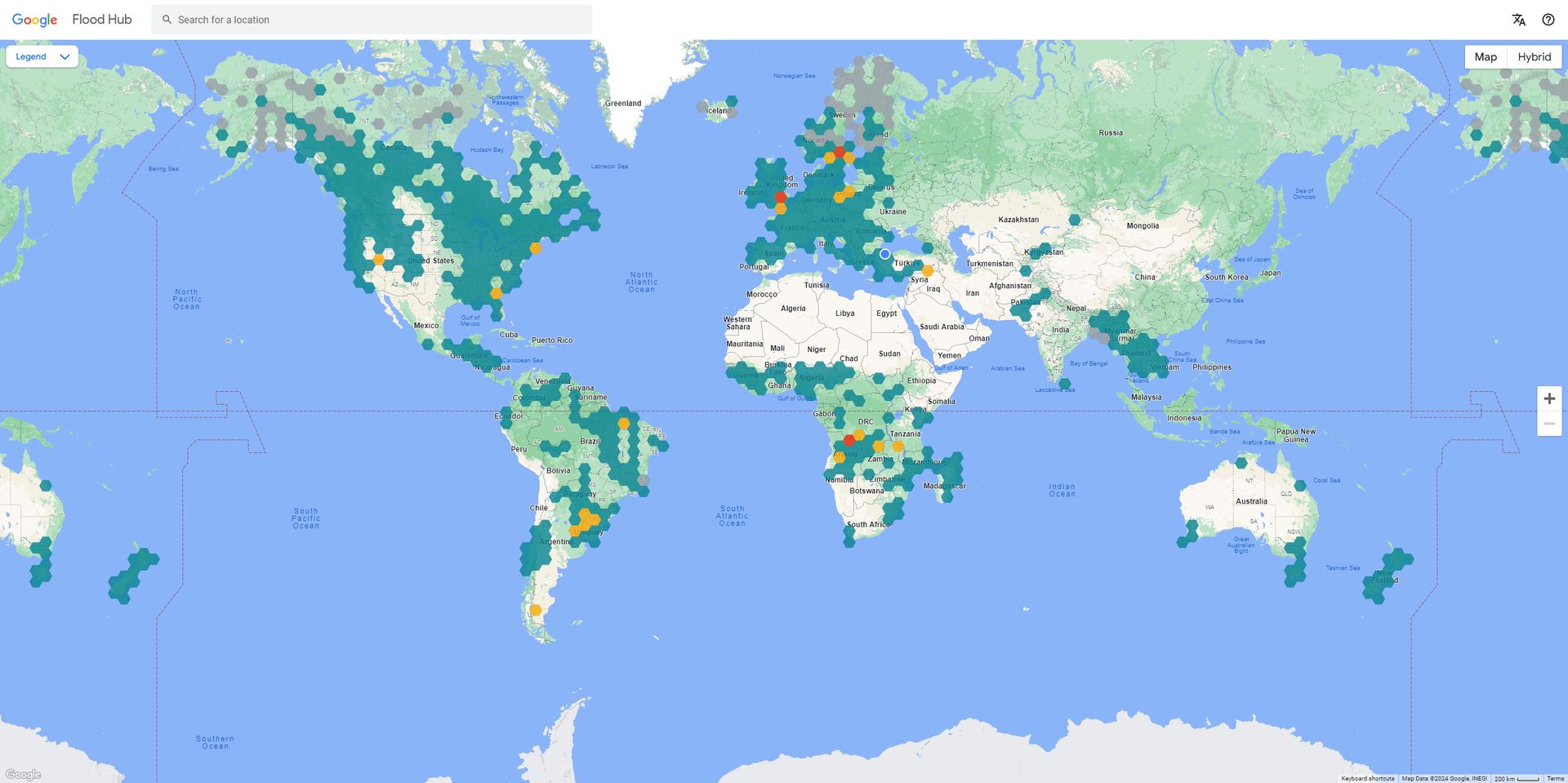Floods remain one of the most destructive natural disasters globally, wreaking havoc upon communities and displacing millions each year. Traditionally, flood prediction systems have depended on extensive networks of physical gauges to monitor river levels and rainfall data.
However, in many regions of the world, such infrastructure is sparse or nonexistent, hampering our ability to issue timely and accurate flood warnings. This is where Google’s advanced AI models are generating a ripple effect in flood forecasting.
Let’s explore how Google’s AI has become so precise in flood prediction with such limited data.
A deep dive into flood prediction with AI
Google’s AI-driven flood prediction technology stands out because of its remarkable ability to make precise forecasts even with limited data, as explained in Google’s blog post.
Instead of relying solely on traditional river gauge readings, Google’s models weave together a rich tapestry of information. This includes historical flooding events, weather forecasts, topographical data (like terrain and elevation), and even satellite imagery to gain a comprehensive understanding of a region’s susceptibility to floods.
The AI system doesn’t simply analyze data; it actively simulates potential flood scenarios. By running thousands of simulations under varying conditions, the models learn to identify patterns and predict how rising water levels might behave in different parts of a river basin.
Crucially, Google’s AI models are designed to adapt to data scarcity. This makes their technology particularly valuable for regions where traditional flood monitoring infrastructure is underdeveloped.
A wave of global impact
Google’s AI flood prediction initiative isn’t just an abstract concept – it’s already making headway in safeguarding lives around the globe.
Google’s Flood Hub platform now provides flood forecasting services in over 80 countries, spanning numerous regions where traditional data collection methods are challenging. This wider coverage significantly expands the number of communities that can receive early flood warnings.

Flood Hub works in tandem with Google Search, Google Maps, and Android notifications to disseminate critical alerts to those in harm’s way. These timely warnings allow people to evacuate or take necessary precautions to mitigate the impact of floods.
Google recognizes that collaboration is key in advancing the cause of disaster preparedness. The company actively partners with governments, NGOs, and researchers to share its AI expertise and refine its flood forecasting capabilities further.
More than just a showpiece technology
While technology plays a crucial role, Google’s flood prediction efforts go beyond mere technological innovation.
Early warnings empower individuals and communities to make informed decisions during potential flooding events, potentially saving lives and minimizing property damage.
Google is trying to cure tuberculosis, breast cancer and more with AI
Google’s use of AI spotlights the potential for technology to contribute to humanitarian causes and make a positive difference in people’s lives.
AI’s role in a safer future
Google’s work in AI-driven flood forecasting is a promising example of how technological innovation can be harnessed to address pressing global challenges. As AI continues to advance, we can anticipate even more sophisticated and impactful applications that extend far beyond flood prediction. Imagine AI systems that can anticipate and warn of droughts, wildfires, or extreme weather events with unprecedented accuracy.
By providing communities with a more comprehensive understanding of potential hazards, AI can empower them to take proactive measures to safeguard lives, infrastructure, and livelihoods.
Furthermore, AI’s ability to analyze vast datasets can shed light on the complex interplay between human actions and climate change.
This knowledge can inform policy decisions and resource allocation strategies aimed at building long-term resilience in the face of environmental challenges.





